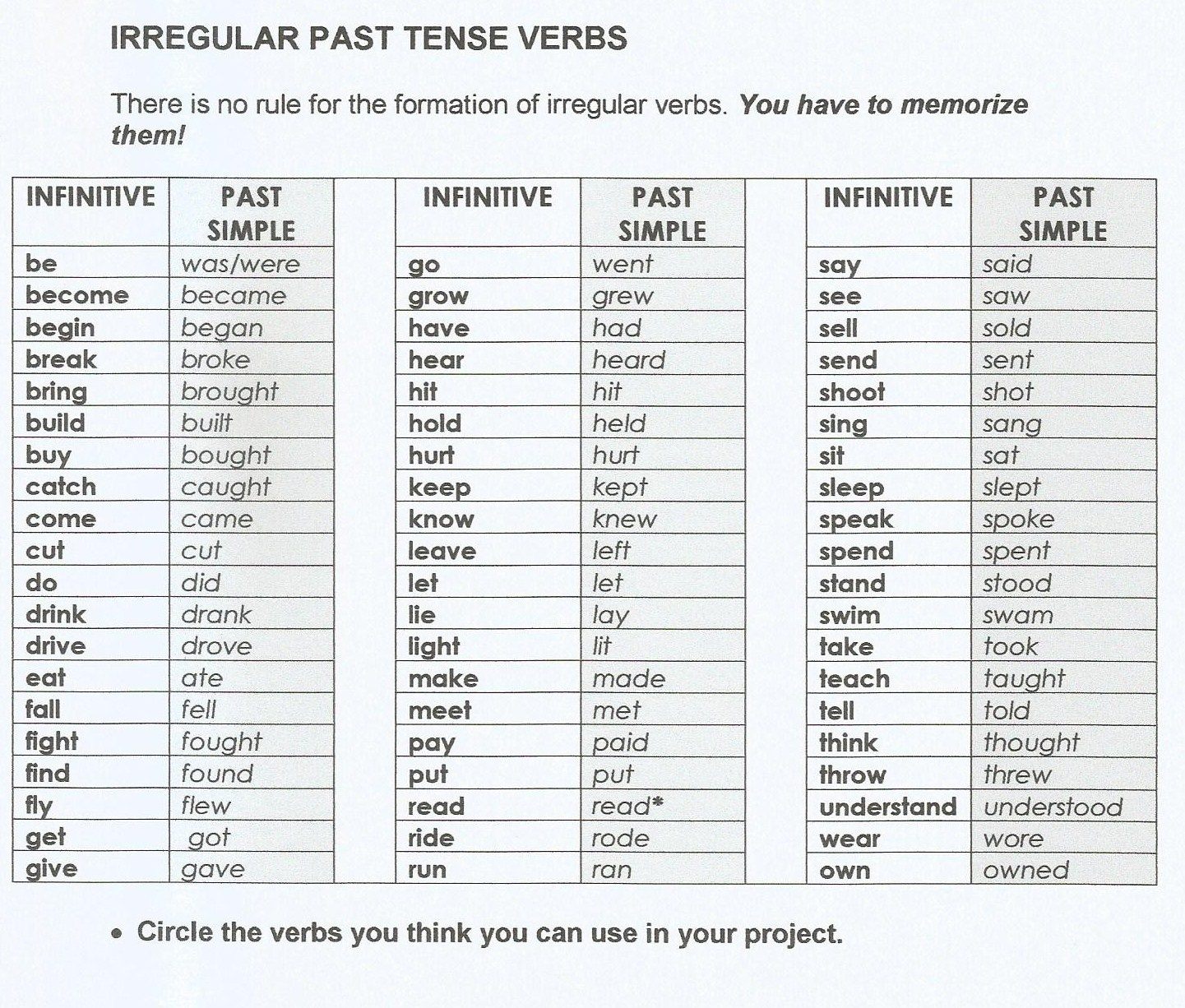
Let’s see if you have learned the present perfect irregulars. Present Perfect Irregulars: Practice Exercises The company has provided what is necessary. La empresa ha proveído / provisto lo necesario. There are only three verbs in Spanish that have two acceptable past participle forms: Past participle: suspendio (suspended, discontinued) You’ve been showing off your car to me all day. Tienes que estar despierto toda la noche. This is a bit confusing, please explain it to me. Confundir – to confuseĮsto es un poco confuso, me lo explicas por favor. He atendido muchas conferencias últimamente. Today, the irregular forms of these verbs are considered adjectives, and the regular ones are past participle forms.ĭo you want to see some of them? Atender – to attend Some time ago, many verbs in Spanish had two past participle forms: a regular and an irregular one. I have discovered a big secret, shall I tell you? Bonus: Past Participle or Adjective? He descubierto un gran secreto, ¿te lo digo?

Revolver (to scramble) – revuelto (scrambled)

Tbe students have returned to school after the holidays.Īll the above verbs can be used with prefixes and maintain their present perfect irregular forms.ĭescubrir (to discover) – descubierto (discovered) Los alumnos han vuelto a las escuelas después de las vacaciones. Don’t worry, the more you’ll use them, the more natural they will sound. Still, there are many present perfect irregulars that follow no rules, and you’ll have to learn them by heart. The storm has destroyed a big chunk of the beach. La tormenta ha destruido un buen pedazo de la playa. Mi tío ha construido la mayoría de estas casas. Note that verbs ending in -uir never have an accented i in their past participle form. Some -er and -ir verbs whose stem (the part that stays after removing the infinite ending) ends in a vowel have an accent mark over the letter i in the past participle forms. I’ll divide them into two groups, to make them easier to remember. They don’t follow the -ido rules but are… irregular. In Spanish, only the -ir conjugation has present perfect irregulars. Let’s talk about present perfect irregulars. You have surely discovered by now that all Spanish tenses have their irregularities. We also use it to talk about the recent past, although it’s more common in Spain than in Latin America. I have played soccer every Tuesday since 2005. He jugado fútbol todos los martes desde 2005. Just like in English, you use present perfect in Spanish to talk about actions, events, and states that started in the past and continue in the present. We have drunk lots of juice over the last two hours.Įasy, isn’t it? When to Use Present Perfect in Spanish Hemos bebido mucho jugo en las últimas dos horas. Just take off the infinitive ending, -ar, -er, or – ir, and add the past participle ending -ado or -ido. The past participles in Spanish end in -ado for -ar conjugations and -ido for both -ar and -ir conjugations. Past participles are verb forms that can function as an adjective (I’ll tell you more about that later) or as part of perfect tenses.
#Do spanish irregular past tense verbs have accents how to
How to Create Regular Past Participle Forms Remember that the letter h is silent in Spanish don’t pronounce it. How to Conjugate the Auxiliary Verb haber SPANISH To form sentences in the present perfect tense, you need to know how to conjugate the verb haber and how to construct past participle forms.


In Spanish, it works the same way:Īuxiliary verb haber + past participle of the main verb In English, the formula is: “have” + past participle of the main verb. What’s not to love? Let’s take a closer look. You form it in a similar way and use it for the same things. Why? Because it works just the same way as in English. Let’s start! A Quick Refresher on Present PerfectĮnglish speakers who study Spanish love the present perfect tense. You’ll also have an opportunity to practice your new knowledge with a few exercises. I’ll reveal all the secrets about present perfect irregulars and tell you how to distinguish them from adjectives. If you want to know the answers, read on. Have you come across present perfect irregulars in your Spanish classes?ĭo you know which verbs have present perfect irregulars? Do you know the rules for this group of irregular verb forms? Maby Olga Put Spanish Grammar 0 comments A Quick Grammar Guide to Present Perfect Irregulars in Spanish


 0 kommentar(er)
0 kommentar(er)
